 Petzlover
Petzlover Domestic Longhaired Cat is originated from United States but Havana Brown is originated from United Kingdom. Both Domestic Longhaired Cat and Havana Brown are of same weight. Domestic Longhaired Cat may live 5 years more than Havana Brown. Both Domestic Longhaired Cat and Havana Brown has same litter size. Domestic Longhaired Cat requires Moderate Maintenance. But Havana Brown requires Low Maintenance
Domestic Longhaired Cat is originated from United States but Havana Brown is originated from United Kingdom. Both Domestic Longhaired Cat and Havana Brown are of same weight. Domestic Longhaired Cat may live 5 years more than Havana Brown. Both Domestic Longhaired Cat and Havana Brown has same litter size. Domestic Longhaired Cat requires Moderate Maintenance. But Havana Brown requires Low Maintenance
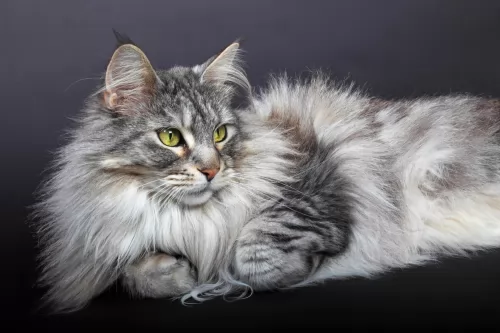 The Domestic Longhaired cat came about because of various attempts by breeders to bring in certain Persian cat varieties in the American Shorthairs.
The Domestic Longhaired cat came about because of various attempts by breeders to bring in certain Persian cat varieties in the American Shorthairs.
The cat comes from champion bloodlines but one of the most remarkable traits of the Domestic Longhair cat is that they are just typical cats with long hair. In other words, Domestic Longhairs are a product of various cat breedings and it is thought they arrived in the USA with the early settlers.
They shouldn’t be confused with the purebred American Longhair cat. The ancestry of the Domestic Longhair cat is unknown but for people who own them, they are a longhaired cat that becomes special to their owners. The cat isn’t recognized by the larger cat organizations.
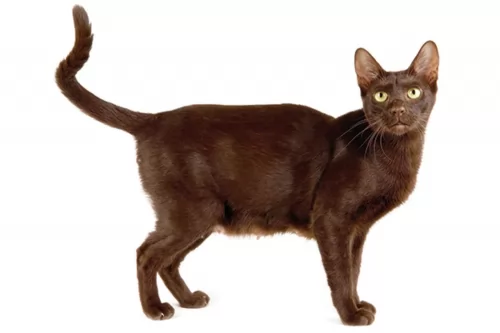 The rare Havana Brown cat seems to be a result of a planned breeding between Siamese and domestic black cats.
The rare Havana Brown cat seems to be a result of a planned breeding between Siamese and domestic black cats.
It was in the 1950s that cat fanciers in the UK became the early breeders. These breeders called themselves the Havana Group. They created the foundation of the modern-day Havana Brown cat.
These breeders managed to produce chocolate shaded kittens which became known as the Chestnut Brown Oriental. Kittens arrived in the US and were crossbred with the Chocolate and Seal Point Siamese to produce chocolate-colored kittens.
In 1964, the Havana Brown was accepted for Championship status by the Cat Fanciers Association.
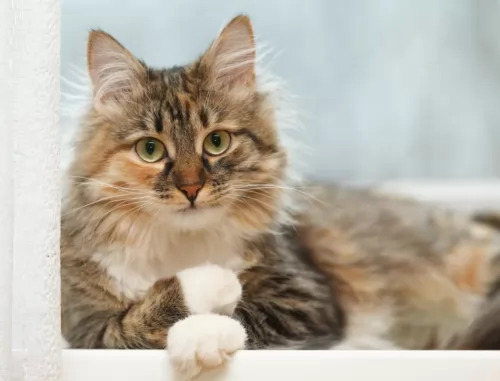 These Domestic long-haired cats are hugely popular in the United States. They can be of any color and the coat can have different patterns too, including bi-color, tortoiseshell and tabby.
These Domestic long-haired cats are hugely popular in the United States. They can be of any color and the coat can have different patterns too, including bi-color, tortoiseshell and tabby.
With his muscled, athletic body he can weigh between 3 and 6kg. He can have a variety of eye colors, ear sizes, and shapes Essentially, their size and shape is influenced by the breed that dominates.
These are just your regular, balanced cats and they make splendid pets for first-time cat owners, single pet owners, those with kids in the home and seniors. You can’t really tell how their personality will be and some will be more quiet than others and some more loving than others too. A lot depends on how you raise- and socialize your cat.
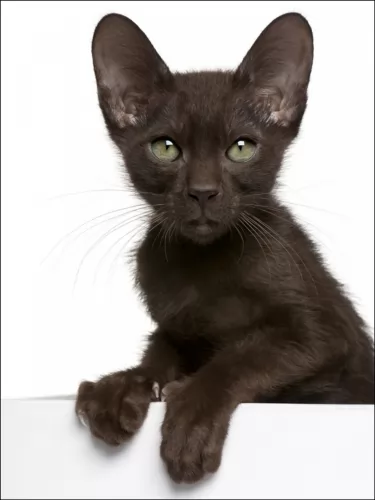 The Havana Brown is a medium-sized cat, being somewhat slender and weighing between 3 and 6kg. The body is long and muscular and the cat has a beautiful brown short to medium-length coat.
The Havana Brown is a medium-sized cat, being somewhat slender and weighing between 3 and 6kg. The body is long and muscular and the cat has a beautiful brown short to medium-length coat.
The coat color is in fact a rich reddish-brown shade. The ears are fairly large and round-shaped and the oval-shaped eyes are a beautiful green.
The Havana Brown is an intelligent, playful, curious cat who enjoys being in the company of its human family. They tend to gravitate towards one favorite family member.
They’re cats that don’t like being left alone for long periods of time. They get on well with children and he also won’t object to becoming friends with the family dog as well.
Friendly though they may be, they also enjoy spending some time on their own. Individual personalities vary but most are playful and talkative.
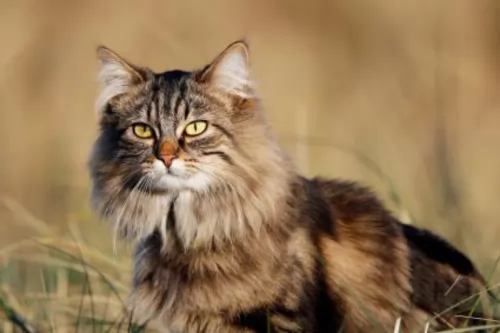 Domestic Longhairs are such wonderful cats and slot into a host of different lifestyles.
Domestic Longhairs are such wonderful cats and slot into a host of different lifestyles.
They are generally content cats with the different lifestyles they find themselves in. Some are smart, some playful, some quiet and some naughty, some are very vocal and some are content to be lap cats.
They're all different but they all have needs and concerns – to be part of a loving human family and to be treated with love, care and respect for the companionship they offer.
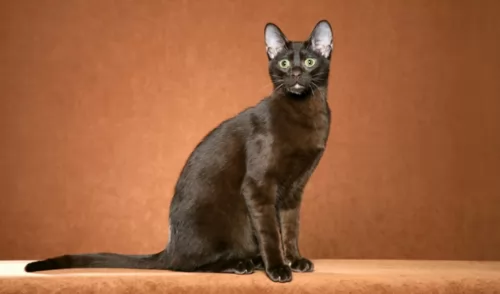 There is a good reason why the Havana Brown cat is so popular. People love the unusually rich brown coat which always has a gleam to it.
There is a good reason why the Havana Brown cat is so popular. People love the unusually rich brown coat which always has a gleam to it.
They also love that this chocolate-colored cat has a wonderful personality and can be a solid companion for humans. So long as you don’t leave him alone for a long time on his own, as that is part of his charm – wanting to be constantly involved with his human family.
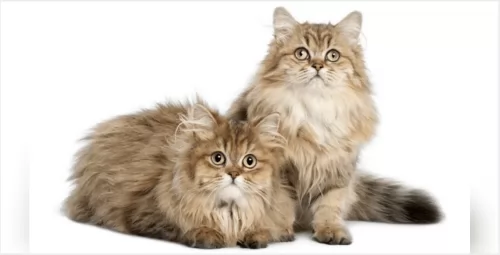 It is their mixed breeding that ensures that the Domestic Longhaired cat doesn’t have any health issues. Like any cat, things such as arthritis, cancer, diabetes and kidney disease can plague your cat.
It is their mixed breeding that ensures that the Domestic Longhaired cat doesn’t have any health issues. Like any cat, things such as arthritis, cancer, diabetes and kidney disease can plague your cat.
A good diet, exercise, lots of love and care can all help to ensure your kitty kat doesn’t succumb to anything that your vet can’t handle.
As soon as your cat shows any sign of illness, get him to the vet. If you look after your cat well, he can avoid a lot of vet visits and can reach 15 to 20 years of age.
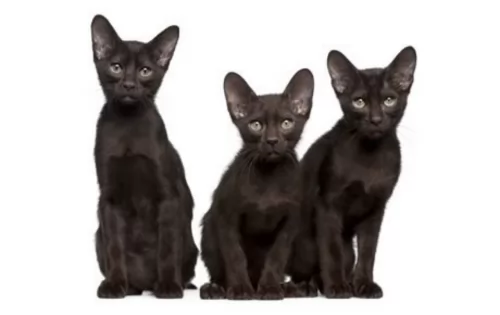 There are no known genetic diseases associated with this breed. They may have a bit of a higher occurrence of gingivitis than other cat breeds, and this thought to come from them having their Siamese ancestry.
There are no known genetic diseases associated with this breed. They may have a bit of a higher occurrence of gingivitis than other cat breeds, and this thought to come from them having their Siamese ancestry.
Beware of bladder stones with your cat which can start at any age. The stones can start off small but can grow larger, rubbing against the bladder walls and resulting in inflammation.
Bladder stones can also lead to blockage of the urethra so that your cat isn’t able to urinate. There are symptoms to indicate your pet may have bladder stones and these can be straining to urinate, painful and little urination, urinary tract infections, and blood in the urine.
This is a time when you want to get your pet to the vet just as soon as possible.
Also, be on the watch for eye infections. Conjunctivitis is one of these to look out for but there are other eye infections your cat can experience. They can come about because of an upper respiratory infection that spreads to the eyes, but they can be caused by any number of things such as bacteria, parasites, and viral infections.
You’ll notice your cat pawing at his eyes and there may even be redness, discharge, and swelling. You vet will be able to treat eye infections with ointments and eye drops.
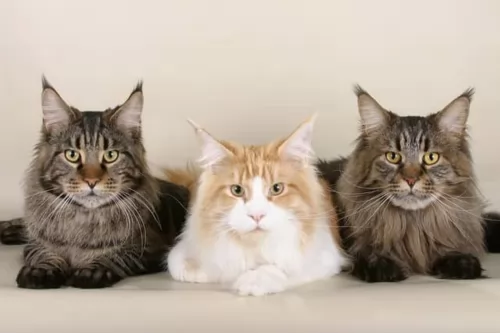 The hair of the Domestic Longhair will need to be tackled and you will need a firm brush to gently brush your cat once a week. This ensures the hair remains silky and tangle-free.
The hair of the Domestic Longhair will need to be tackled and you will need a firm brush to gently brush your cat once a week. This ensures the hair remains silky and tangle-free.
Remember, there are always professional cat groomers who specialize in grooming cats and ensuring their teeth, inside of ears, their nails and their fur is in tip-top condition.
Keeping your cat healthy is always going to require a trip to the vet. Your Domestic Longhair is going to require certain vaccines and deworming to ensure he remains free of deadly cat diseases. Also, if your cat is acting in a lethargic, ‘sick’ way, it could well be a sign that he is ill and a trip to the vet will be imperative as the condition could become worse.
To ensure your cat has the best chance at health, make sure you feed him well. Gut health is absolutely imperative and feeding your cat too many carbs will give him plenty of digestive problems.
A cat is a carnivore – a meat eater – and therefore his food needs to be meat. A kitten will require 4 small meals a day and an adult cat – over the age of 1 year – will require 2 meals a day. Any questions you have about feeding your cat can be answered by your local veterinarian.
Speak to your vet about spaying or neutering your Domestic Longhaired Cat as this will prevent unwanted kittens, particularly if your cat is allowed outdoors and wanders off.
Also, neutering and spaying have a host of health benefits for your cat and it also improves their personality.
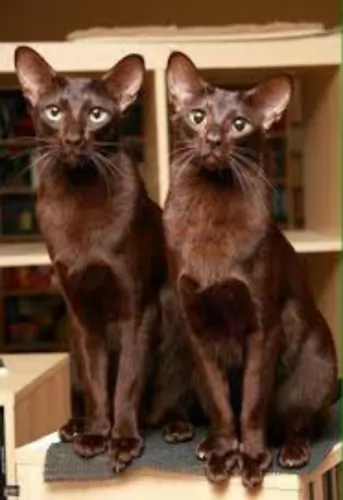 With the cat’s short coat, he experiences little shedding so very little grooming is required. A gentle brush once a week will be enough. These cats love attention and submit easily to a brush and body rub with a soft rubber brush.
With the cat’s short coat, he experiences little shedding so very little grooming is required. A gentle brush once a week will be enough. These cats love attention and submit easily to a brush and body rub with a soft rubber brush.
Check inside the mouth as periodontal disease is a problem with cats. You want to make sure that there aren’t any bad teeth as this can cause a lot of pain.
A vet can also be useful in examining your cat and pinpointing problems.
Check the inside of the ears too because they can become somewhat clogged with wax and dirt. If you don’t want to probe inside the cat’s ears with a cotton ball with warm water and apple cider vinegar, you can take your cat to the vet or to a professional cat groomer.
Keep the litter box of your cat spotlessly clean as these cats are fussy with cleanliness.